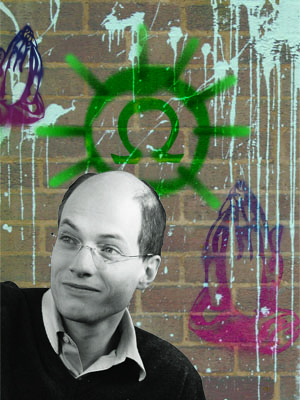

At "Agape Restaurants", strangers could meet to bare their souls, not trade boasts value-based rather than technocratic universties would host a Department of Relationships and Centre for Self-Knowledge museums might be arranged not according to art-historical categories but with galleries devoted to Compassion, Fear and Love Temples of Perspective would soar to the stars to remind us of our littleness and supply "souvenirs of the transcendent". Halfway between earnest and jest, De Botton suggests faith-free venues and customs to replicate the practical wisdom of churches, temples and synagogues. He does better when he drops the superior suavity, as when a section on the cult of Mary begins with the Graham Greene-ish scene of a stricken middle-aged man laying at the Blessed Virgin's feet all those crippling feelings of "remorse, foreboding and loneliness" that would be utterly unwelcome in the office or at home. When he puts the worldwide conventions of Catholic confession on a par with buying a burger at McDonalds (both "ensure a regularity of service across a vast and scattered labour force"), the Hitchens-esque sarcasm risks undermining De Botton's wider purposes. The genially erudite ironies that have served its author so well with topics from travel to architecture can feel a bit too glib here. Indeed, this book can sound too cool for its own good. His urbane, rather Voltairean scrutiny examines how the practice of faith – with most examples from Christianity, several from Judaism and a few from Buddhism – has helped weak-willed humans cope with "the crises and griefs of finite existence on a troubled planet".

I suspect that De Botton's tone grates even more than his content. And strong personalities within liberal Anglicanism (with counterparts in reform Judaism) held out a friendly hand from the side of the faithful. It moulded my childhood, certainly: we didn't really go to church but we did go to churches, with the sacred volumes of Pevsner's Buildings of England lodged in the glove box of the car. This experience, of emotional affinity shorn of any doctrinal attachment, spanned several generations. In whose blent air all our compulsions meet". This aching nostalgia for an impossible faith and its masterworks has itself left some fine monuments, from Matthew Arnold in the 1860s listening to the "melancholy, long, withdrawing roar" of the ebbing "Sea of Faith" on "Dover Beach", to Philip Larkin, "Church Going" as a respectful sceptic to "A serious house on serious earth.

For English writers and thinkers, the urge to rescue the core values of a waning Christianity for secular culture drove literary explorations and educational ventures for over a hundred years.


 0 kommentar(er)
0 kommentar(er)
